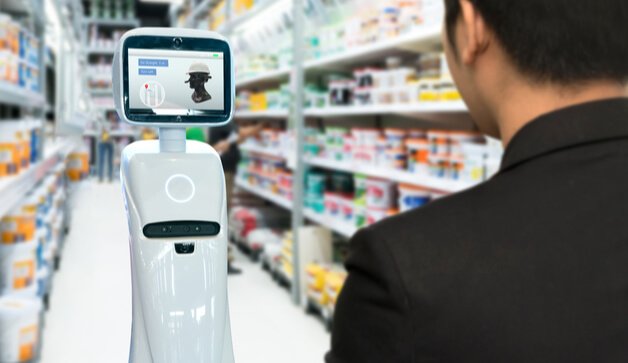

Market Overview:
The retail automation market is experiencing rapid growth, driven by customer experience enhancement, operational efficiency optimization, and data-driven insights & personalization. According to IMARC Group’s latest research publication, “Retail Automation Market Report by Type (Point-of-Sale (POS), Barcode and RFID, Electronic Shelf Label (ESL), Camera, Autonomous Guided Vehicle (AGV), and Others), Implementation (In-Store, Warehouse), End User (Supermarkets and Hypermarkets, Single Item Stores, Fuel Stations, Retail Pharmacies), and Region 2025-2033”, The global retail automation market size reached USD 19.6 Billion in 2024. Looking forward, IMARC Group expects the market to reach USD 39.1 Billion by 2033, exhibiting a growth rate (CAGR) of 8% during 2025-2033.
This detailed analysis primarily encompasses industry size, business trends, market share, key growth factors, and regional forecasts. The report offers a comprehensive overview and integrates research findings, market assessments, and data from different sources. It also includes pivotal market dynamics like drivers and challenges, while also highlighting growth opportunities, financial insights, technological improvements, emerging trends, and innovations. Besides this, the report provides regional market evaluation, along with a competitive landscape analysis.
Grab a sample PDF of this report: https://www.imarcgroup.com/retail-automation-market/requestsample
Our report includes:
Growth Factors in the Retail Automation Market
Smart kiosks spark retail automation market, with US malls speeding checkouts. VR try-ons in Europe boost engagement, personalizing shopping. Social media posts on TikTok highlight smart retail trends, attracting young buyers. Urban stores lead automation use, while rural shops need affordable tools. Retail automation market growth relies on seamless interactions, enhancing satisfaction globally by 2033. AI assistants drive retail automation market, with Japan’s stores offering real-time help. Mobile payments in Australia streamline purchases, boosting convenience. Social media ads promote digital tools, drawing customers. Smart retail trends thrive in city centers, but rural areas face tech costs. Regulatory data protection builds trust, ensuring retail automation market trends support personalized shopping worldwide.
Automated warehouses boost retail automation market, with US retailers cutting stock delays. AMRs in Europe speed shelving, lowering costs. Social media videos on YouTube showcase efficient retail trends, engaging operators. Urban stores lead robotic adoption, while rural outlets need budget systems. Retail automation market growth depends on streamlined processes, improving efficiency globally by 2033. IoT trackers drive retail automation market, with Japan’s shelves updating stock instantly. Cloud logistics in Australia cut waste, boosting profits. Social media ads promote smart inventory tools, attracting retailers. Efficient retail trends thrive in advanced markets, but rural stores face cost barriers. Regulatory standards ensure accuracy, building confidence. Retail automation market trends emphasize speed, ensuring agile operations worldwide.
AI insights spark retail automation market, with US retailers analyzing purchase patterns. Targeted ads in Europe lift sales, using shopper data. Social media posts on X highlight data-driven retail trends, engaging marketers. Urban stores lead analytics adoption, while rural shops need simple tools. Retail automation market growth relies on tailored strategies, boosting engagement globally by 2033. Dynamic pricing drives retail automation market, with Japan’s stores adjusting rates live. Predictive analytics in Australia optimize stock, cutting costs. Social media ads showcase data platforms, attracting retailers. Data-driven retail trends thrive in tech hubs, but rural markets face access issues. Regulatory data rules ensure privacy, building trust. Retail automation market trends focus on customization, ensuring personalized shopping worldwide.
Key Trends in the Retail Automation Market